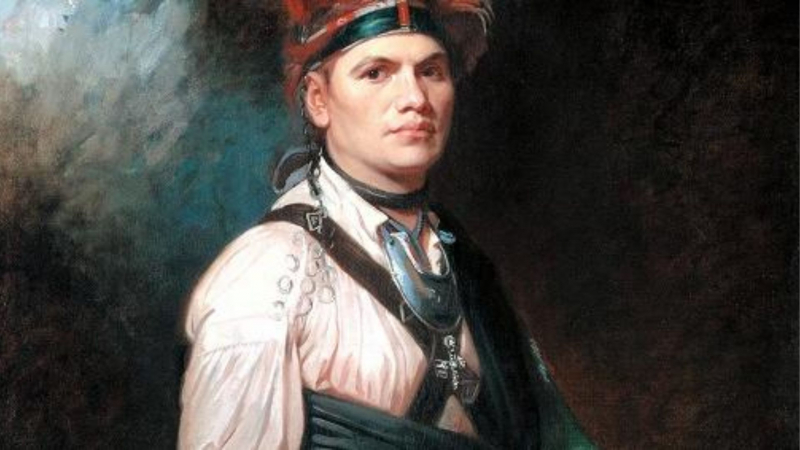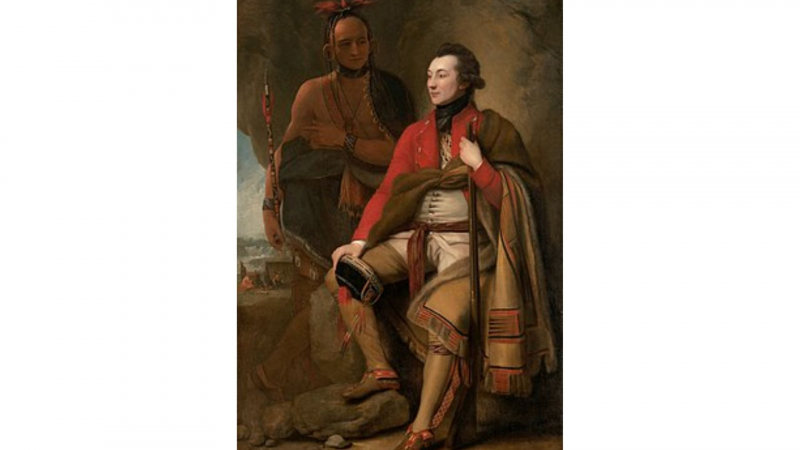Joseph Brant And Guy Johnson, The British Superintendent Of Indian Affairs, Were Instrumental In Persuading Native Americans In The North To Support The British
Joseph Brant, also known as Thayendanegea, was a Mohawk military and political figure who lived in modern-day New York and was intimately affiliated with Great Britain during and after the American Revolution. He died on November 24, 1807, at the age of 74. He may have been the Native American of his generation most well-known to both Americans and the British. He interacted with many of the most important Anglo-American figures of the time, including King George III and George Washington. Brant commanded "Brant's Volunteers," a group of Mohawk and colonial Loyalists that fought in a bloody partisan conflict on the frontier of New York during the American Revolution. He was given the nickname "Monster Brant" by the Americans who accused him of carrying out atrocities, however historians later claimed that the claims were untrue.
Guy Johnson (c. 1740 – 5 March 1788) was an Irish military officer and diplomat. He moved to the Province of New York as a young man and worked with his uncle, Sir William Johnson, who was the British Superintendent of Indian Affairs for the northern colonies during the Revolutionary War. He fought on the side of the British. Guy Johnson succeeded his uncle as British Superintendent of Indian Affairs, serving as Sir William's deputy. He discovered a lot about the Mohawk and Iroquois people. Guy took over as supervisor after William passed away in 1774, just before the war.
In 1774, Guy Johnson succeeded his uncle as Superintendent of Indian Affairs, and it was largely due to his efforts that the Iroquois Confederacy's majority of tribes joined the British cause. As a prominent Mohawk military and political figure, Joseph Brant fought a partisan battle in New York on behalf of the British. That's all about the sixth fact about the Native Americans in the American Revolution we want to mention.












